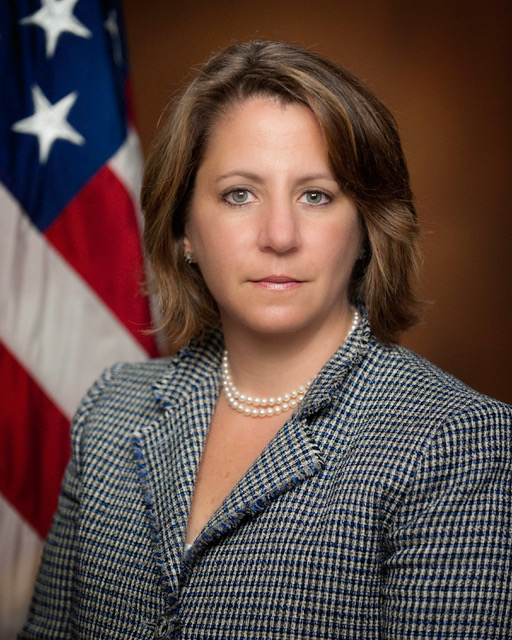The Dangers of Walling Off America
In my twenty years of government service, I have been part of three Presidential transitions. In my experience, it is common for members of an outgoing administration to be unsure—and sometimes skeptical—about the policy direction of the administration that succeeds them. Having spent the last four years as President Obama’s principal advisor on homeland security and counterterrorism, my concerns today are broader than any particular policy.
Published by The Lawfare Institute
in Cooperation With

In my twenty years of government service, I have been part of three Presidential transitions. In my experience, it is common for members of an outgoing administration to be unsure—and sometimes skeptical—about the policy direction of the administration that succeeds them. Having spent the last four years as President Obama’s principal advisor on homeland security and counterterrorism, my concerns today are broader than any particular policy.
They are broader than the controversy this past week over the refugee and immigration order and any of the specific controversies over detention and interrogation, cybersecurity, or the organization of the National Security Council. To be clear, I share the views of bipartisan national security and counterterrorism professionals—many of whom I’ve been privileged to serve with across three Administrations—that the recent immigration Executive Order will make us less safe. But beyond the ill-conceived ban on travel and refugees from a subset of countries that is unnecessary and counterproductive, I see in the new administration’s early steps an approach to transregional threats that isolates the United States from key partners and allies and departs from reliance on the institutions and expertise that have served well our national security and administrations of all stripes. I know firsthand the challenges posed by the transregional nature of the threats we face. And to put it bluntly, it is folly to turn inward in response to them. We cannot make ourselves safer by attempting to wall ourselves off.
|
If you are finding Lawfare useful in these times, please consider making a contribution to support what we do. |
Tom Friedman’s phrase that “the world is flat” may be a cliche, but it’s also remarkably prescient. The evidence of globalization is all around us and technology’s advance has only increased its pace. Along with the rapid movement of commerce and ideas, we must confront a world of expanding threats—not just terrorism and not just cybersecurity but also emerging infectious diseases—that challenge states, communities and individuals alike.
The threats we face more than ever require that the United States look outward, lead its allies and partners, and honor and rely on institutions, norms and practices that have served this nation for centuries. The notion that we can respond to these threats simply by keeping the bad guys out is a dangerous delusion.
Take terrorism for example. We should always be looking for ways to strengthen our vetting systems for those who want to come to the greatest nation in the world—but we need to do so smartly. We should not be turning inward just when we need our partners and allies more than ever to fight the so-called Islamic State. Local forces are essential to defeating terrorists and their safe havens. Iraqi Security Forces—with U.S. help—are closing in on Mosul in the most consequential fight yet against a murderous group of thugs who have brought death, destruction and false promises, not the utopia they claimed. At this critical moment, we should be supporting our partners, not sowing mistrust among them and feeding uncertainty about America’s commitment to our Muslim partners with a needless travel ban or a slammed door in the face of the most vulnerable. This only raises the risks to the 6,000 U.S. troops in Iraq and fuels ISIS propaganda. ISIS’s social media machine is replete with the fallacy that the United States is at war with Islam. As our partners are routing ISIS from its territory—why would we be giving a recruiting bonanza to their digital safe haven?
Addressing cyber threats also inherently requires a multinational approach. Cybersecurity is the quintessential borderless challenge, and the threat is growing at an exponential rate. Aggressive nation states like Russia, Iran, China and North Korea are projecting cyber power just as terrorist actors, criminals and hacktivists are using cyber to pursue destruction, deception and discord. The U.S. must continue to take credible actions in response, just as we have against China and Iran—levying the first ever criminal indictments for state-sponsored cyber-enabled economic espionage and cyber attacks on our critical infrastructure; and as we have against North Korea and Russia, imposing sanctions for using cyber means to conduct coercive attacks on free speech and our democratic process.
Our closest allies must be able to count on the United States to stand with them against those seeking to destabilize—through cyber or other means—the rules-based order we have lead for decades. We need established norms of behavior in cyberspace and a willingness to isolate those actors, including the most aggressive among them: Russia. Most importantly we must impose costs—and keep the costs coming—when those norms are violated. We must get better, faster and more nimble at this. There should be no free pass for malicious cyber actors, whether they operate from a basement or on behalf of a nation currying favor with one hand and sowing doubt about our democratic system with the other. That necessarily means working with other countries that have an interest in enforcing shared norms, and with law enforcement and intelligence partners to investigate cases that inevitably cross international boundaries.
Finally, the near and long term challenge most in need of a global response is that of emerging infectious disease. Terrorism and cyber threats have featured prominently in all three of the transitions on which I worked. Most recently, in my transition meetings with my successor, I urged that the new administration will need to maintain a third focus when it comes to transregional threats that will keep people up at night: infectious disease.
It is a virtual certainty that the new administration will be challenged by some new pathogen, one that no wall will keep out. Ebola and Zika showed us pandemics need not have a malicious origin to take lives, cause panic, and drain resources. This will take focus, resources and precisely the sort of global cooperation that is difficult when countries feel alienated from American leadership. The Global Health Security Agenda, championed by the Obama Administration and now 50 countries strong, must be sustained. It requires United States investment and leadership to ensure that countries continue transparent, independent health assessments and are accountable for progress.
Global disease defenses are only as strong as their weakest link. So it’s not enough to focus solely on our preparedness here at home. But while we’re at it we need to recognize that we have a disaster fund for communities devastated by floods; we need the same for pandemics. As with terrorism, the challenge is to stop a disease before it comes to the homeland. And that necessarily means caring about what’s happening elsewhere in the world. It also necessarily means that we need science-based decision-making. In a public health crisis the public deserves, and our security demands, facts, grounded in science and communicated by career professionals—and we need political leadership to listen and act on the basis of those facts.
Combatting threats should not be about partisanship or ideology; it should be about what is effective, what enhances rather than frays partnerships, and what is consistent with our values. Partners both at home and abroad are essential to addressing transnational threats. Over the last two weeks, we have already seen what can happen when policy to address major transnational threats is made hastily and without input from the professionals who are responsible for implementing and defending it. The result is confusion, and innocent lives get upended. The process matters. The institutions and the expertise they house also matter. And so too do the many actors around the world with whom we must work to protect our country effectively. Given the range of threats we face today, we ignore these realities at great peril to our nation.





